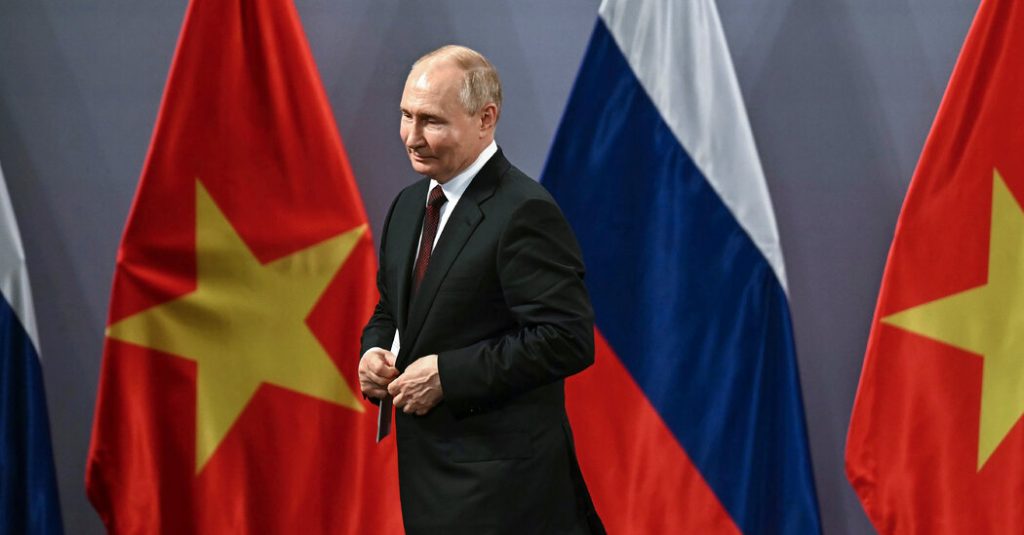President Vladimir V. Putin of Russia’s four-day trip to Asia, including stops in Pyongyang and Hanoi, caused significant upheaval in the region. By forging new alliances and strengthening existing ones, Putin managed to challenge both Washington and Beijing, altering the regional power dynamics. His visit to North Korea and Vietnam resulted in the signing of numerous deals, adding complexity to the already tumultuous relations between various Indo-Pacific nations.
The trip underscored the fact that the power struggle between the United States and China in the region is not as straightforward as it may seem. With escalating tensions over Taiwan and militarization in the South China Sea, the region was already bracing for potential conflict. Putin’s actions, particularly his support for North Korea, further exacerbated the situation, sparking concerns among countries like Japan and South Korea, who have been intending to strengthen their defenses in light of North Korea’s threats.
The timing of Putin’s trip added to the already existing uncertainties in the region, with the U.S. presidential election and China’s expansion of its nuclear capabilities causing further anxiety. As Putin aligned himself with North Korea and effectively reignited old hostilities on the Korean Peninsula, regional players were forced to reassess their security strategies and alliances, creating a more complex geopolitical landscape.
While Russia historically has strong military ties with countries like North Korea, India, and Vietnam, these relationships have been strained over the years. However, Putin’s recent overtures towards North Korea and Vietnam, particularly in defense-related deals, may signal an effort to revive or strengthen these ties. By potentially fueling an arms race in Asia, Russia stands to benefit economically through arms sales and alliances in the region.
The strategic implications of Putin’s actions in Asia extend beyond regional dynamics. By aligning with North Korea and signaling dissatisfaction with China’s response to Russia’s endeavors in Ukraine, Putin may be attempting to assert Russia’s influence on a global scale. This move has the potential to disrupt not only the relationships between regional powers but also impact broader international alliances and conflicts.
Overall, President Putin’s four-day visit to Asia has stirred up considerable uncertainty and insecurity in the region, leading many countries to reevaluate their strategic priorities and alliances. While Russia’s historical military ties have played a role in shaping the region’s security landscape, Putin’s recent actions have introduced new challenges and complexities that will require careful navigation by all stakeholders involved.


